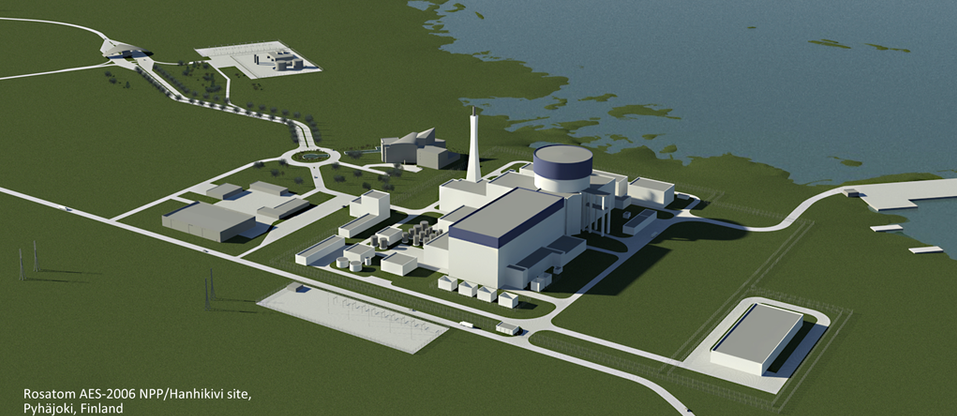Finland’s prospective Hanhikivi Nuclear Power Plant has inched past an ownership hurdle after slightly more than 40 Finnish stakeholders agreed to stay with project, meaning only a smidgen over half of the plant will be Finnish-owned, with some 34 percent of it controlled by Russia’s state nuclear corporation, Rosatom – which is gunning for more.
Finland’s prospective Hanhikivi Nuclear Power Plant has inched past an ownership hurdle after slightly more than 40 Finnish stakeholders agreed to stay with project, meaning only a smidgen over half of the plant will be Finnish-owned, with some 34 percent of it controlled by Russia’s state nuclear corporation, Rosatom – which is gunning for more.
Voimaosakeyhtiö SF was founded in 2006 as the main shareholder in Fennovoima, the Finnish company building the nuclear power plant.
March 2 was the Voimaosakeyhtiö deadline for committing to the nuclear power plant, which will be built by Rusatom Overseas, Rosatom’s nuclear power plant exporting on the on the northern coast at Pyhäjok, YLE said today. Rosatom is intends to build its 1200 Megawatt AES-2006 VVER reactor-based plant at the site, World Nuclear News reported.
Fennovoima has had difficulty holding on to investors since 2012, when Germany’s E On, which was initially slated to build the plant, withdrew from the project. Rosatom stepped up to fill E On’s vacancy.
“Problems with securing Finnish ownership and funding for the plant shows that it might not be economically viable, especially if it has to rely on such a large Russian share,” said Bellona’s General Director and nuclear physicist, Nils Bøhmer.
Finland’s Green League party is similarly against the plant’s construction and today wrote announcement in Helsinki’s Aamulehti newspaper that said it would withdraw from the government if Hanhikivi’s permit were submitted to the Parliament for consideration.
The prospective plant raises further alarm because Finland is getting so close to completing a permanent repository for spent nuclear fuel and radioactive waste generated by its only other nuclear power plant at Olkiluoto.
“If they are going to built the Hanhikivi plant, Finland would have to build a new repository,” said Bøhmer. “This is an expensive proposition that would lead to further uncertainty about spent nuclear fuel from the new plant.”
Scraping to hold investors
Out of the original 60 Finnish shareholders in Voimaosakeyhtiö , 44 businesses and municipal power facilities remained with the project. Fifty and two tenths of a percent of the nuclear power project is now in Finnish hands, while Rosatom owns 34 percent, something that could present problems, as the Finnish government requires a clear Finnish ownership majority in the plant, YLE reported.
Voimaosakeyhtiö has pledged to increase its Finnish share holdings to 66 percent, said WNN. The company said it hopes a new round of negotiations with a new round of potential Finnish investors would boost national ownership by June, when the company must finalize the plant’s ownerships shares.
In December, Rosatom agreed to an ownership share in the plant of 34 percent. But, according to WWN, Rosatom head Sergei Kiriyeko said last week he was prepared to take as much as 49 percent ownership in the plant, Finnish and international news agencies reported.
Fennovoima, as quoted by WWN, said it would have a complete power plant investment in the Hanhikivi plant confirmed later this month. Final commitment by the Finnish companies it is courting is a necessary precondition for signing any contracts with Rosatom to supply the reactor, said WWN.




